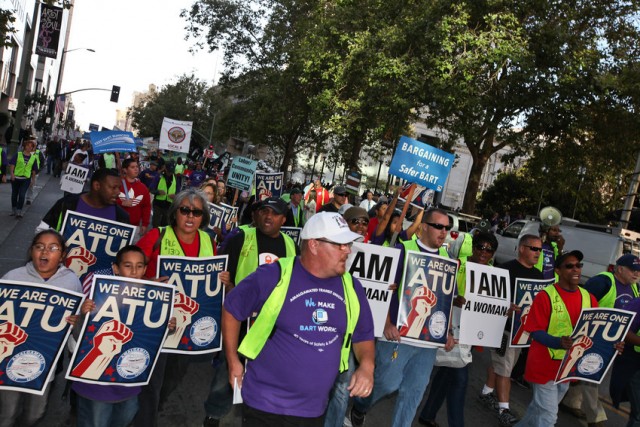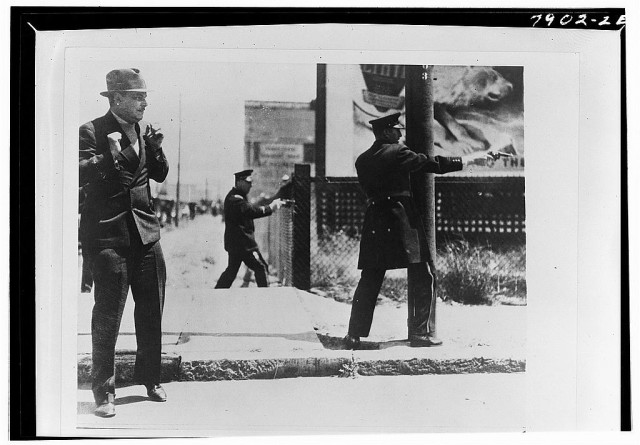
It should be a relatively quiet Labor Day, since the masses are at Burning Man and the rest of us are hampered by the Bay Bridge closure (check out transit alternatives to the bridge, which remains closed till 5 a.m. on Tuesday). As you fire up the barbie at home, though, you can mull the history of the holiday itself:
The first Monday in September was made a national holiday on June 28, 1894, as a tribute to the social and economic achievements of American workers.
San Francisco, no surprise, played a pivotal role in our country's labor history. On May 9, 1934, the International Longshoremen's Association led a strike for better pay and better hours. They were later joined by other workers; the picketing grew and intensified. On July 16 the strike spread throughout the city, and became known as the San Francisco General Strike.
The mass protest continued over four consecutive days. Two strikers died and one was wounded in a confrontation with police on “Bloody Thursday,” when hundreds of others were clubbed and gassed. The ensuing attention from the public and government officials had an impact, as the following year, the National Labor Relations Board was created, protecting the right of workers to organize into labor unions.

Speaking of local worker strikes and protests, it would seem that 2013 has been a banner year, what with recent activity surrounding BART, AC Transit, the Port of Oakland, area hospital strikes, yesterday’s fast-food walkout, today's Oakland Airport strike, and much more. Doth we protest too much?